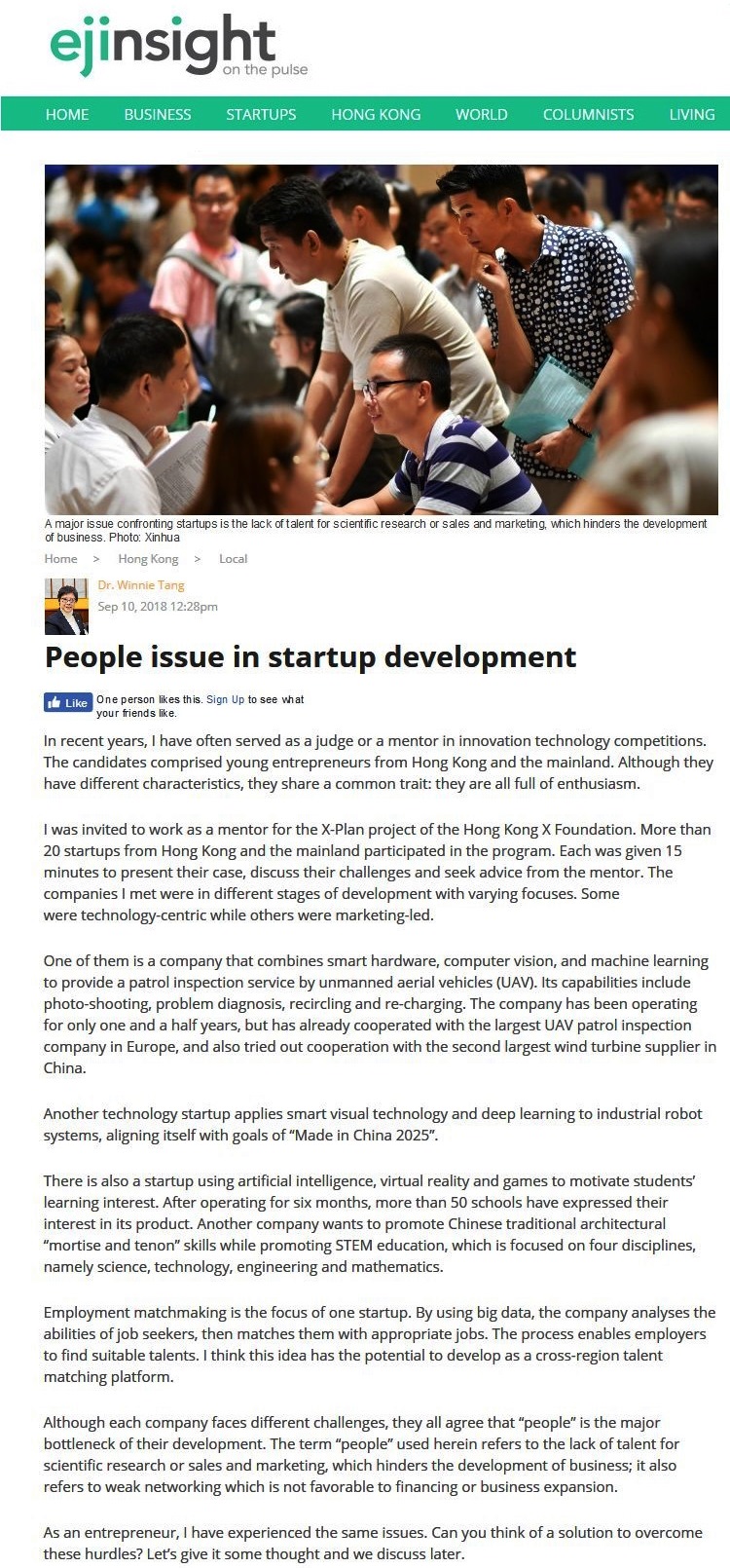網上版請按此

People issue in startup development
In recent years, I have often served as a judge or a mentor in innovation technology competitions. The candidates comprised young entrepreneurs from Hong Kong and the mainland. Although they have different characteristics, they share a common trait: they are all full of enthusiasm.
I was invited to work as a mentor for the X-Plan project of the Hong Kong X Foundation. More than 20 startups from Hong Kong and the mainland participated in the program. Each was given 15 minutes to present their case, discuss their challenges and seek advice from the mentor. The companies I met were in different stages of development with varying focuses. Some were technology-centric while others were marketing-led.
One of them is a company that combines smart hardware, computer vision, and machine learning to provide a patrol inspection service by unmanned aerial vehicles (UAV). Its capabilities include photo-shooting, problem diagnosis, recircling and re-charging. The company has been operating for only one and a half years, but has already cooperated with the largest UAV patrol inspection company in Europe, and also tried out cooperation with the second largest wind turbine supplier in China.
Another technology startup applies smart visual technology and deep learning to industrial robot systems, aligning itself with goals of "Made in China 2025".
There is also a startup using artificial intelligence, virtual reality and games to motivate students' learning interest. After operating for six months, more than 50 schools have expressed their interest in its product. Another company wants to promote Chinese traditional architectural "mortise and tenon" skills while promoting STEM education, which is focused on four disciplines, namely science, technology, engineering and mathematics.
Employment matchmaking is the focus of one startup. By using big data, the company analyses the abilities of job seekers, then matches them with appropriate jobs. The process enables employers to find suitable talents. I think this idea has the potential to develop as a cross-region talent matching platform.
Although each company faces different challenges, they all agree that "people" is the major bottleneck of their development. The term "people" used herein refers to the lack of talent for scientific research or sales and marketing, which hinders the development of business; it also refers to weak networking which is not favorable to financing or business expansion.
As an entrepreneur, I have experienced the same issues. Can you think of a solution to overcome these hurdles? Let's give it some thought and we discuss later.
Dr. Winnie Tang
Honorary Professor, Department of Computer Science, The University of Hong Kong